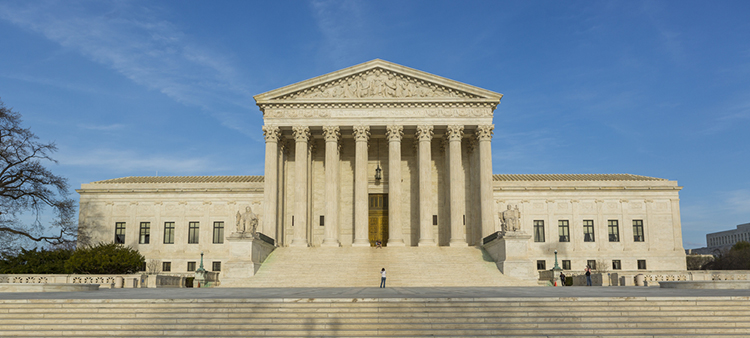Supreme Court majority may side with Ohio in its voter purge procedure, oral arguments indicate

Justice Stephen G. Breyer appeared to side with swing voter Anthony M. Kennedy during oral arguments Wednesday when he said Ohio had a legitimate reason for purging its voter rolls.
Breyer elaborated after Kennedy said Ohio wanted to protect voter rolls from people who move and vote in the wrong district, report the New York Times, the Washington Post and SCOTUSblog.
“Every year a certain number of people die, and every year a certain number move to California,” Breyer said. “We don’t want them on the voter roll. That used to be a big problem, voting dead people.”
That left just three of the liberal justices apparently supporting Larry Harmon, who challenged Ohio’s voter purge process after he was removed from voter rolls, the Washington Post points out. Neither Justice Clarence Thomas nor Justice Neil M. Gorsuch asked any questions during oral arguments in the case, Husted v. A. Philip Randolph Institute.
Ohio’s purge policy is the harshest in the nation.
Under the Ohio process, voters who haven’t cast a ballot in two years get a notice from the state asking them to verify they are eligible to vote. Those who don’t respond and then don’t vote in the next four years are kicked off the rolls.
The issue in the case is whether Ohio’s procedure comports with federal law, which bars removal of people from voter roles for failing to vote. The law does allow removal of voters who fail to respond to notices about potential removal, and then fail to vote in two or more consecutive elections for federal office.
The Cincinnati-based 6th U.S. Circuit Court of Appeals ruled the law was violated because Ohio used a two-year nonvoting period as a trigger for its notices.
Harmon said in court papers that he abstained from voting after becoming disillusioned with the candidates and the political process. Harmon says he never received Ohio’s notice in 2011, and was barred from voting against a marijuana referendum in November 2015.
A lawyer for Harmon, Paul M. Smith, argued that a better method of policing voter rolls would be to consult postal or motor vehicle records. About 70 percent of people who receive notices from the state don’t return them, he said. Ohio’s process “is vastly overbroad by design,” he said.
Smith also conceded that Ohio could act if a nonforwardable notice were returned as undeliverable. It’s unclear if the distinction was enough to satisfy Breyer’s concerns, but his vote may not make a difference if Gorsuch and Thomas side with Ohio, SCOTUSblog says.



